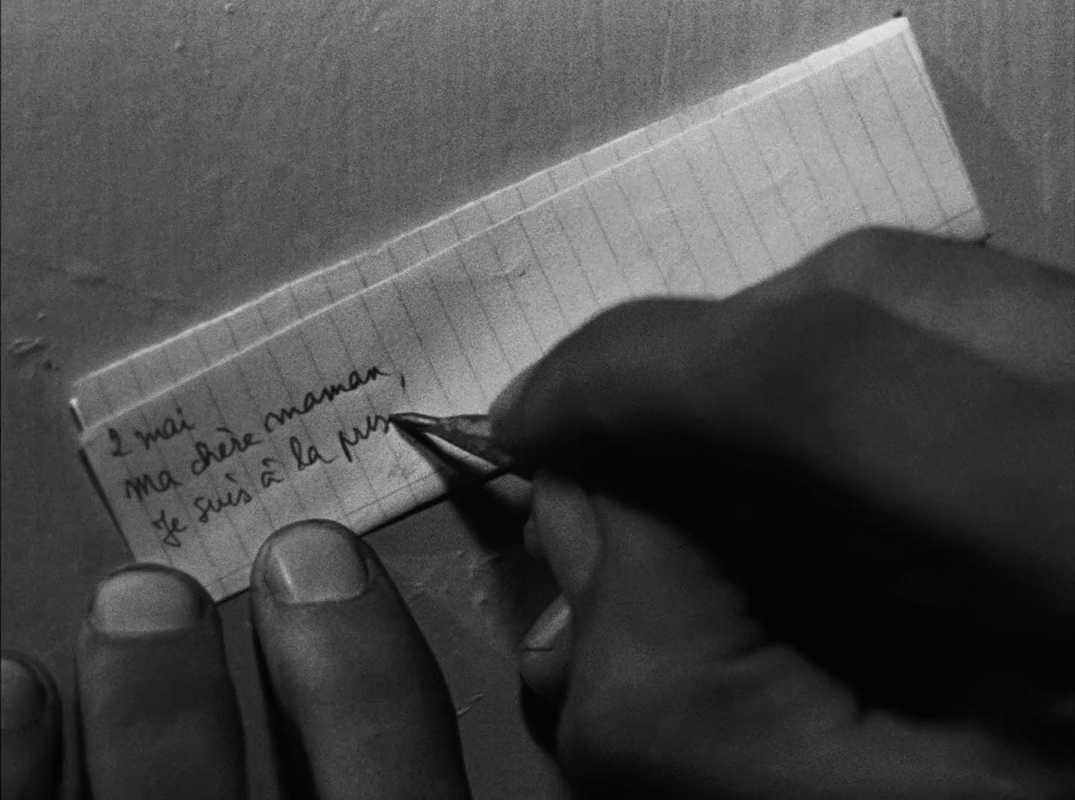दुविधा [Duvidha / The Dilemma] (Mani Kaul, 1973)
May
3
National Paranormal Day

Lachhi, the bride (Raisa Padamsee). DP: Navroze Contractor.
A supernatural theme for National Paranormal Day (USA). May 3 (coincidentally?) is also the day Charles Fort passed on to a different realm.
A ghost falls in love with a bride whose husband, a merchant, is away from home. He takes on the man's form, and lives with her.
drama
غزل [Ghazal] (Masud Kimiai, 1975)
May
2
Brothers and Sisters Day

The two brothers in their forest. DP: Nemat Haghighi.
Sibling love or strife on Brothers and Sisters Day (USA)
Brothers Hojjat and Zeini live in peace in the forest. When strangers cut down the trees, a city woman joins the couple. Despite the comfort she brings with structure, food, and a warm body, the men come to realise that she's a disturbance of their peace.
“With nothing to do, no news and in terrible solitude, we were 100 unfortunates awaiting our fate. I had no illusions about my own. If I could only escape, run away…”Un condamné à mort s'est échappé ou Le vent souffle où il veut [A Man Escaped] (Robert Bresson, 1956)
May
2

A hand with dirty nails writing on a scrap of paper with a pencil stump. It starts “Mai 2 Ma chère maman, Je suis à la pris[…]“. DP: Léonce-Henri Burel.
– Fontaine
“Have you ever tried to dress as a priest? Try it, at least once. It's a bit like being a woman. In summer the breeze enters under the genitals. You can go without briefs. Priests are half men and half women.”Todo modo [One Way or Another] (Elio Petri, 1976)
May
1
National Day of Prayer

M. (Gian Maria Volontè) speaks to the gathered elite while a gypsum Christ multiplies bread and fishes. DP: Luigi Kuveiller.
A spiritual theme for the National Day of Prayer (USA)
– Don Gaetano
Inspired by the Spiritual Exercises of Ignatius of Loyola, Italy's political leaders, industrialists, bankers, and business leaders gather for a retreat as an atonement for their past crimes of corruption and unethical practices, and to reinforce their power.
حاجی واشنگتن [Hajji Washington / Haji Washington] (Ali Hatami, 1983)
Apr
30
George Washington – 1789

The ambassador and guest in the embassy. The guest, a white cowboy peeling peanuts, leisurely rests on a Persian rug with a hookah by his side. The ambassador recites from a book, with his chaii within reach (via). DP: Mehrdad Fakhimi.
The White House, or set in Washington, DC, in commemoration of the first inauguration of George Washington in 1789.
Hajji Hossein-Gholi Noori was Iran's first ambassador to the United States in 1889. Stuck in DC, homesick, and without any US-based Iranians to serve, he slowly unravels
鬼の詩 [Oni no uta / Song of the Devil] (Tetsutaro Murano, 1975)
Apr
29
Jerry Seinfeld – 1954

Keima Kyo entertaining his audience by hanging numerous clay pipes from his face. DP: Yasuhiro Yoshioka.
A comedian, or set in Brooklyn or NYC, for Jerry Seinfeld's birthday (1954).
Rakugo (落語, litt. “story with a fall”), is a style of Japanese comedy performed while seated. Armed with a few props, the rakugoka recites a comical monologue using pitch and gestures.
A dramatic retelling of the life of rakugoka Katsura Beikyo II. Keima Kyo, a talented rakugoka, is offered apprenticeship from an older successful performer, but refuses. Young and arrogant, he decides to take over the other man's act instead.
“We broke up on April's fools day, so I took it as a joke. I'm willing to humor her for a month.”重慶森林 [Chung Hing sam lam / Chungking Express] (Wong Kar-Wai, 1994)
Apr
28
8:59

A flipclock. It's April 28, a Friday, and 8:59 pm. DPs: Christopher Doyle & Wai Keung Lau.
– He Zhiwu, Cop 223
“We split up on April Fool's Day. So I decided to let the joke run for a month. Every day I buy a can of pineapple with a sell-by date of May 1. May loves pineapple, and May 1 is my birthday. If May hasn't changed her mind by the time I've bought thirty cans, then our love will also expire.”重慶森林 [Chung Hing sam lam / Chungking Express] (Wong Kar-Wai, 1994)
Apr
28
freebie: April

Eating pineapple, expiration date May 1. DPs: Christopher Doyle & Wai Keung Lau.
A film set in April.
– He Zhiwu, Cop 223
Krakatit (Otakar Vávra, 1948)
Apr
26
International Chernobyl Disaster Remembrance Day

A man on a darkened, concrete runway, running towards a man-made structure, a mirage. DP: Václav Hanuš.
Something nuclear on International Chernobyl Disaster Remembrance Day
In a state of delirium, engineer Prokop chases his stolen chemical formula, worried it may be used for mass destruction
With the experience of yet another world war, and two devastating applications of science biggest terror, Karel Čapek's 1922 novel Krakatit [“Krakatoa”] anticipated and moulded the decades to come.
And R.U.R. is now, just around the corner.
Sweet love, renew thy force; be it not said
Thy edge should blunter be than appetite,
Which but to-day by feeding is allay’d,
To-morrow sharpen’d in his former might: So, love, be thou; although to-day thou fill
Thy hungry eyes even till they wink with fullness,
To-morrow see again, and do not kill
The spirit of love with a perpetual dulness. Let this sad interim like the ocean be
Which parts the shore, where two contracted new
Come daily to the banks, that, when they see
Return of love, more blest may be the view; Or call it winter, which, being full of care,
Makes summer’s welcome thrice more wish’d, more rare.The Angelic Conversation (Derek Jarman, 1985)
Apr
23
William Shakespeare — 1564

Two men in tender embrace. DPs: Derek Jarman & James Mackay.
A Shakespearean play or quote for the Bard's (assumed) birthday (1564).
– William Shakespeare, sonnet 56 (Fair Youth)
Accompanied by Coil's brooding lust and Judi Dench's solemn recital of 14 of Shakespeare's sonnets, men cross dreamlike landscapes and dark desires.